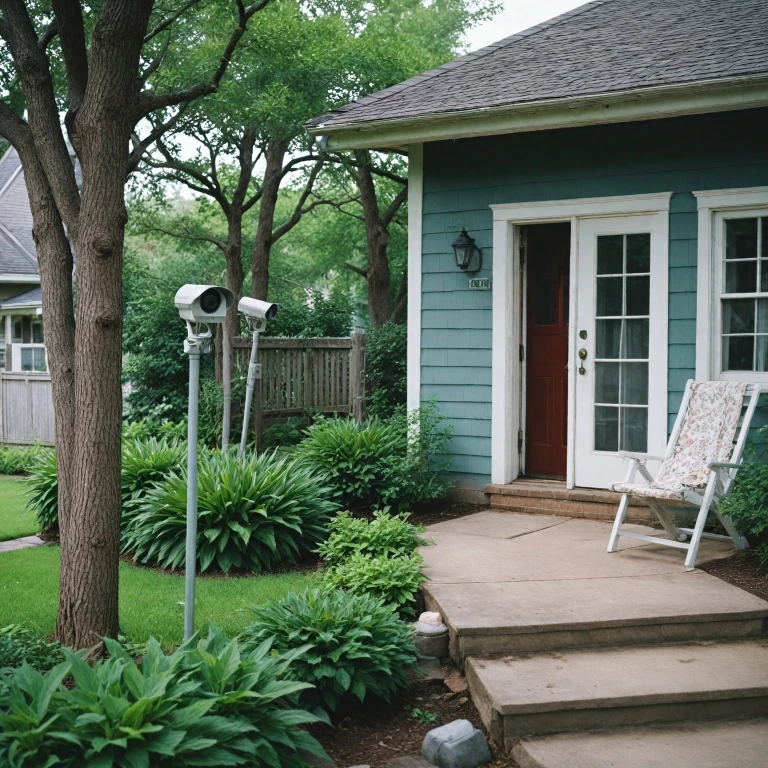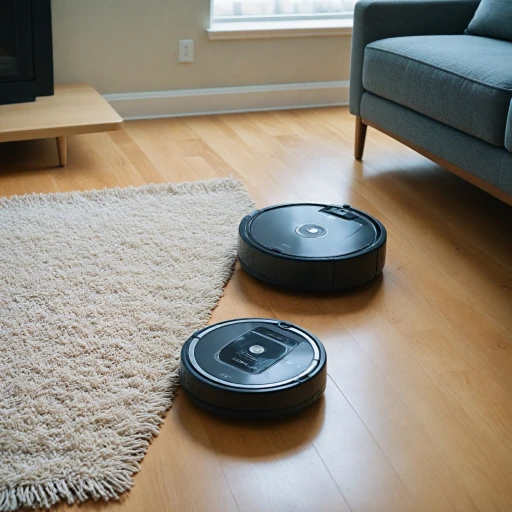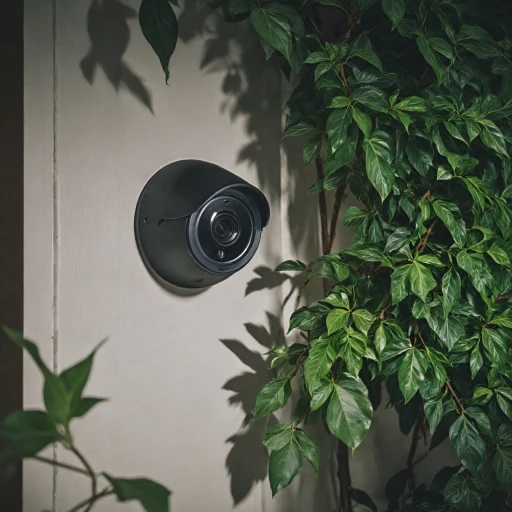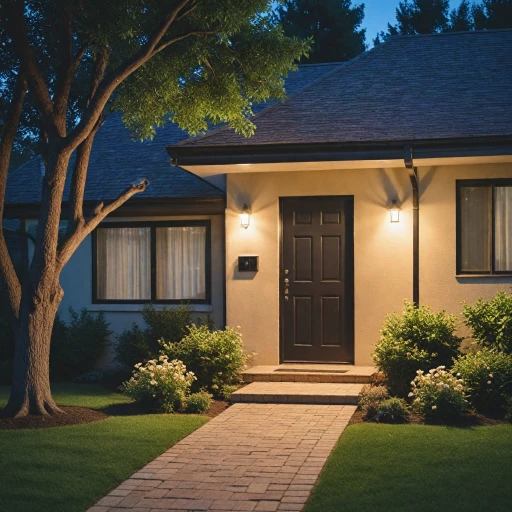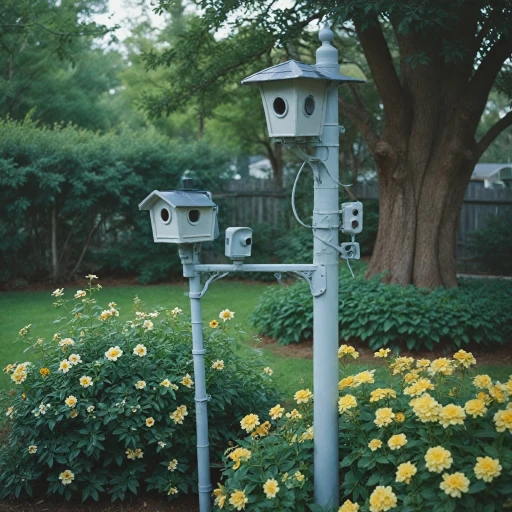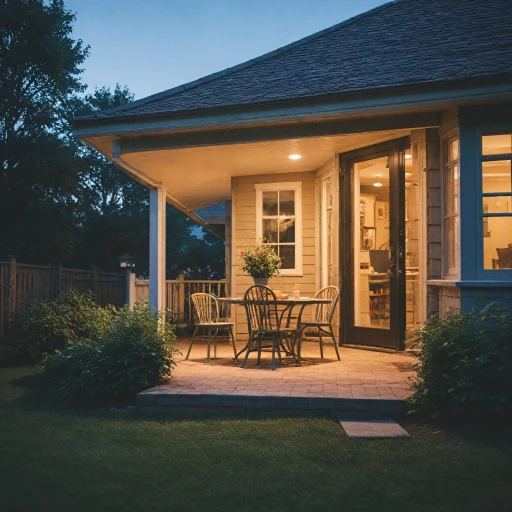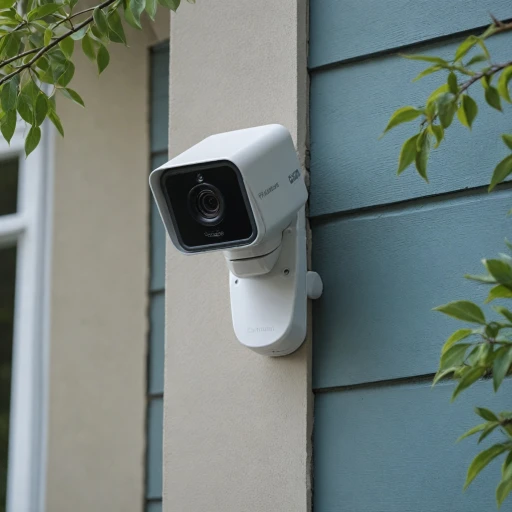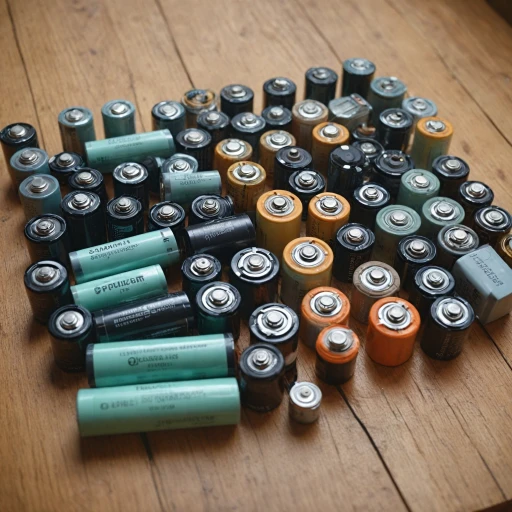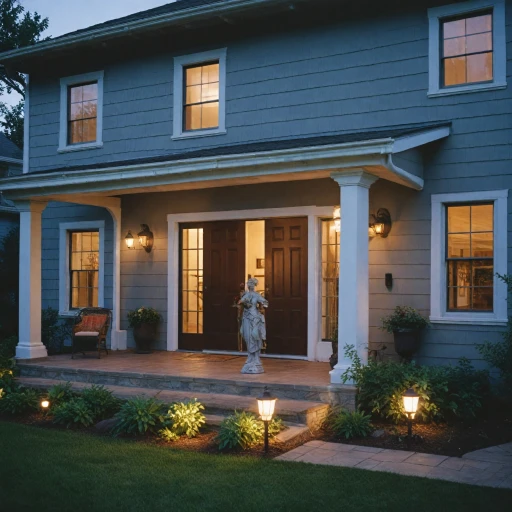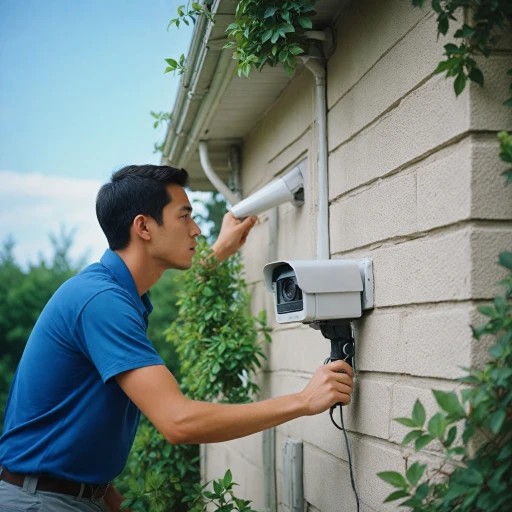
Understanding No Internet Security Cameras
The Basics of No Internet Security Cameras
No internet security cameras are specifically designed to operate independently of a wifi or internet connection. These systems offer a practical solution for individuals who prioritize privacy or live in areas where a constant internet connection isn't reliable. By understanding the distinct features and how these cameras work without relying on wifi, potential users can make informed decisions.
Here's how they maintain their operations without the traditional connectivity:
- Local Storage: These cameras often rely on local storage solutions, such as SD cards or hard drives within a network video recorder (NVR), to save footage. This eliminates the dependence on cloud storage that requires internet connection.
- Power and Battery: Many no internet security cameras are battery powered or use a solar powered system to ensure they remain functional in locations with limited power supply access.
- Connectivity: While some systems utilize a closed-circuit connection to transmit data, others may incorporate cellular networks for remote access, which can offer a degree of flexibility without full-fledged internet dependency.
No internet cameras, such as those by brands like Reolink, offer robust solutions for individuals seeking to establish a security system without wifi. Although there are certain limitations in their functionality, particularly concerning real-time alerts, many users find these drawbacks negligible compared to the benefits of enhanced privacy. As technology continues to evolve, security cameras that don't require an internet connection will likely incorporate more innovative features.
Advantages of Using Security Cameras Without Internet
Key Benefits of No-Internet Security Cameras
When considering a security system, the necessity of an internet connection often comes into play. However, security cameras that operate without internet offer several distinct advantages. Here are some benefits of using these types of cameras:
- Privacy Assurance: One of the primary concerns with internet-connected security cameras is the risk of data breaches. With no-internet cameras, your footage and data remain offline, significantly reducing hacking risks and ensuring privacy.
- Continuous Operation: These cameras maintain functionality during internet outages, making them an ideal choice for areas with unreliable internet connections. You can trust that your security does not waiver with fluctuations in your network.
- Reliable Footage Storage: Many no-internet cameras utilize local storage options such as NVR systems or SD cards. This ensures continuous recording without relying on internet-dependent cloud storage solutions.
- Cost Efficiency: Without the need for internet connectivity, you eliminate the costs associated with data plans or broadband services. It’s a budget-friendly option that still offers robust security features.
- Enhanced Security through Hardwired Setup: Many no-internet security cameras are wired, providing a stable power supply and reliable connection compared to wireless options that might depend on wifi.
While these cameras offer multiple benefits, it's essential to consider the scope of your security needs. For a more thorough understanding of the benefits, visit our detailed guide on security cameras without wi-fi.
Potential Drawbacks and Limitations
Limitations of No Internet Security Cameras
When considering security cameras that operate without an internet connection, it is essential to be aware of some potential drawbacks and limitations that might impact their effectiveness in certain situations. While these cameras offer numerous advantages, you might encounter some trade-offs. Here are a few factors to keep in mind:- Limited Remote Access: Unlike wireless security cameras connected to a network, non-internet cameras do not provide remote access. This could limit your ability to view live footage while away from your property, as there is no network to facilitate such a connection. This might be problematic in instances where real-time monitoring is needed.
- Higher Dependency on Storage: As these cameras typically rely on local storage solutions like SD cards or nvr systems, there is a need to ensure that there is sufficient space to archive footage. This could mean regularly maintaining storage systems to prevent data loss.
- Less Flexible Notifications: With no link to the internet, there is no direct way to receive instant alerts or notifications on your mobile device. This requires relying on more traditional surveillance methods, such as scheduled manual checks.
- Power Limitations: Depending on the power supply, like battery powered options, some no internet cameras may require frequent battery changes or recharging. Ensuring continuous power can become a challenge, unless opting for solar powered solutions.
- Data Retrieval Efforts: Accessing video footage may require additional effort for data retrieval, as the process involves either physically removing storage media or manually connecting the camera system to a monitor for review.
Types of No Internet Security Cameras
Varieties of Security Cameras Exclusively Off the Grid
When exploring the space of security cameras that function independently of an internet connection, it's essential to recognize the variety of options available. Whether you require a robust camera system for home surveillance or a straightforward wireless security camera setup, there's a solution to fit your needs.- Battery-Powered Cameras: These cameras are ideal if you don't have the ability to connect to a direct power supply. They often come equipped with local storage options like an SD card, ensuring the footage is saved without requiring any internet components. Brands like Reolink offer battery-powered security cameras with night vision features, catering to short-term surveillance needs.
- Solar-Powered Solutions: Solar-powered security cameras combine sustainability with independence from external power sources. The integration of solar panels ensures continuous power, making them suitable for remote locations. Solar-powered models often include features such as cellular connectivity for remote access without wifi.
- Non-Wifi Systems: For those looking to avoid wifi internet reliance, these systems are a go-to. They function through other connections, such as cellular networks, making them versatile and adaptable for different environments. Such systems can work effectively where traditional wifi-based security cameras might struggle.
- NVR (Network Video Recorder) Systems: Unlike models that rely on internet storage or cloud services, NVR systems focus on local storage. They tend to require a wired setup but offer the advantage of storing surveillance footage on a hard drive independent of internet data transfer.
Installation and Maintenance Tips
Guidelines for Installing and Maintaining No Internet Security Cameras
Setting up security cameras without internet can be straightforward if you follow certain steps. These cameras offer advantages in terms of privacy and reliability, but there are considerations for optimizing their performance and longevity.- Selecting the Right Spot: Begin by choosing a strategic location for your security camera that maximizes visibility and minimizes blind spots. This location should provide a clear view and be difficult for potential intruders to tamper with.
- Sufficient Power Supply: Ensure your camera system is connected to a reliable power source. Battery powered options are ideal for areas where power supply may be inconsistent. Additionally, consider solar powered cameras if you want sustainable energy options.
- Data Storage: It's crucial to set up local storage efficiently. Opt for high-capacity solutions like NVR systems or reliable memory cards, which can hold extensive footage over an extended period without the need for an internet connection for cloud storage.
- Regular Maintenance: Keep your surveillance cameras clean and free from any obstructions. Regularly check for and remove debris or dirt that may impair the camera's lens or impede night vision capability.
- Functional Testing: Conduct periodic tests to verify the cameras are operating effectively. Check the quality of the video and ensure that the system records and stores footage properly.
- Backup Power: In case of power outages, having a backup, such as a battery supply, ensures continuous surveillance. Consider wireless cameras powered by batteries to avoid downtime.
Comparing No Internet and Internet-Connected Cameras
The Connective Dilemma: Choosing Between Internet and No Internet Security Cameras
In the realm of home surveillance, deciding between internet-connected security cameras and those that function without internet can be a crucial choice. Each option offers unique benefits, but it's essential to weigh these against the potential limitations to identify what best suits your needs.
Internet-connected security cameras typically require a stable internet connection, often utilizing wifi. This connectivity enables real-time monitoring through smart devices, giving you the power to check surveillance footage from anywhere. However, a flaw in your wifi security or an internet outage could disrupt the system's performance.
On the other hand, security cameras that operate without an internet connection offer a different level of security. These systems rely on local storage, making them less vulnerable to cyber threats. They can provide footage through nvr systems or directly into an integrated camera system without data transmitted over a network. Plus, options like cellular networks or battery-powered cameras ensure continuous power supply even during power outages.
When it comes to installation, internet security cameras might have more complicated setup processes due to wifi configurations, whereas offline systems can be more straightforward, focusing on power and storage provisions. Maintenance involves regular checks on battery power for wireless security cameras and ensuring storage devices have enough capacity for surveillance.
Ultimately, your choice may depend on whether you prioritize the convenience of remote access and live video streaming, or you prefer the reliability and privacy of a connection-free system. Understanding the nuances of both can guide your decision-making process, fitting the security camera solution into your home environment with efficacy.

